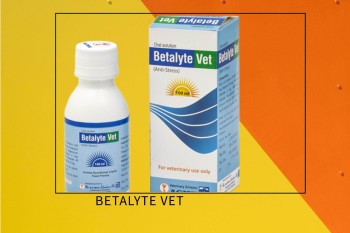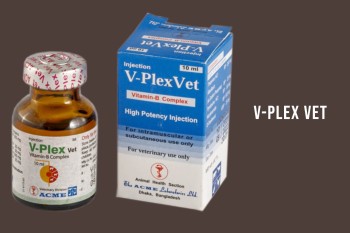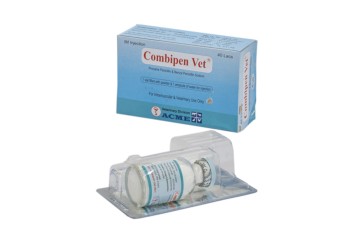Lega Vet 💉
Flunixin Meglumine
Composition:
🧪💊
Each milliliter of Flunixin
Meglumine Injection contains 50 mg of Flunixin, a potent active ingredient
recognized for its anti-inflammatory and antipyretic properties.
Pharmacology:
🔬⚕️💪
Flunixin Meglumine works by
inhibiting the production of prostaglandins and other inflammatory-inducing
chemicals in the body. As a result, it effectively alleviates pain and
inflammation, providing much-needed relief for animals in distress.
Indications:
🐄🐎🩹
This injection is highly
recommended for animals suffering from a range of conditions, including musculoskeletal
disorders, visceral pain (such as colic pain), and pyrexia associated with
bovine respiratory disease, endotoxemia, and acute bovine mastitis.
Dosage and Administration:
📋💉
Flunixin Meglumine Injection can
be administered through intramuscular (IM), intravenous (IV), or subcutaneous
(SC) routes.
For cattle, the recommended
dosage is 1-2 ml per 45 kg of body weight, given slowly via intravenous
administration. This can be given once a day as a single dose or divided into
two doses, with a 12-hour interval, for a maximum of three days.
When it comes to musculoskeletal
disorders and equine colic pain, the dosage is 1 ml per 45 kg of body weight
for five consecutive days.
Remember, always follow the
instructions provided by your Registered Veterinarian for accurate dosage and
administration.
Contraindication:
🚫🐾
Flunixin Meglumine Injection
should not be used in animals with a known hypersensitivity to Flunixin.
Warnings and Precautions:
⚠️🛡️
- Dairy cattle should not be
administered Flunixin within 24 hours of parturition, as it may increase the
risk of retained fetal membranes (RFM) in cows.
- Rapid intravenous
administration of the medicine should be avoided.
Side Effects:
🤒😔🚨
Common side effects of Flunixin
Meglumine Injection may include gastrointestinal ulceration. However, please
note that kidney damage, bleeding disorders, and allergic reactions are rare
but potential risks associated with this medication.
Use in Pregnancy and Lactation:
🐾🤰🤱
Flunixin Meglumine Injection can
be used in pregnant and lactating animals. However, it is important to consider
the risk and necessity when administering the medication during these stages.
Drug Interactions:
💊🔀🔁
Flunixin may potentiate the
effect of Warfarin and related drugs. Additionally, it may interact with other
nonsteroidal anti-inflammatory drugs (NSAIDs), both potentiating and being
potentiated by them. Please consult your veterinarian for further guidance if
your animal is on any other medication.
Overdose:
⚠️💉❗
When used at recommended doses,
Flunixin Meglumine Injection is generally safe. However, in case of accidental
overdose or any concerns, it's crucial to seek veterinary assistance
immediately.
Withdrawal Time:
⏰🥩🥛
After administering this
medicine, it is important to note the following withdrawal times: meat
consumption should be avoided for up to four days, while milk consumption
should be avoided for up to 1.5 days.
Storage:
🔒🌡️🔆
To maintain the efficacy of the
medication, store Flunixin Meglumine Injection below 25°C in a dry place,
protected from light. Remember to keep it out of reach of children.
Packing:
📦💉🔟🌡️
Flunixin Meglumine Injection is
available in 10 ml and 30 ml vials, providing convenient options for your
veterinary needs.
Flunixin Meglumine Injection
offers a reliable solution for alleviating pain and inflammation in animals. By
inhibiting the body's production of inflammatory-inducing chemicals, this
non-narcotic, nonsteroidal analgesic promotes the well-being and comfort of
your beloved companions. Always consult with a Registered Veterinarian to
determine the appropriate dosage and administration for your furry friends.
Remember to prioritize their health and happiness! 🐾✨🩺
Note: This blog post is for
informational purposes only and does not replace professional veterinary
advice.

















